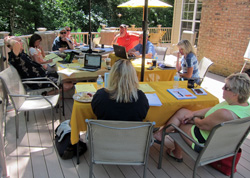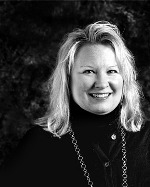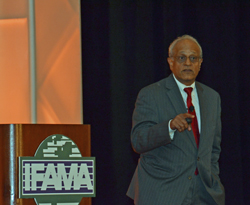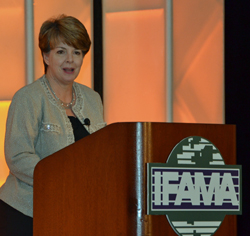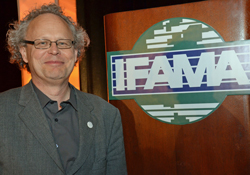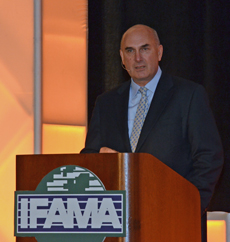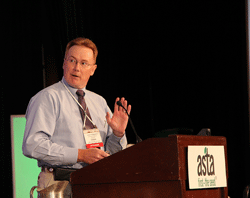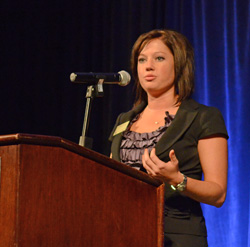 The 2013 World Food Prize will honor three distinguished scientists – Marc Van Montagu of Belgium, and Mary-Dell Chilton and Robert T. Fraley of the United States.
The 2013 World Food Prize will honor three distinguished scientists – Marc Van Montagu of Belgium, and Mary-Dell Chilton and Robert T. Fraley of the United States.
Building upon the scientific discovery of the Double Helix structure of DNA in the 1950s, Van Montagu, Chilton, and Fraley each conducted groundbreaking molecular research on how a plant bacterium could be adapted as a tool to insert genes from another organism into plant cells, which could produce new genetic lines with highly favorable traits.
The revolutionary biotechnology discoveries of these three individuals – each working in separate facilities on two continents – unlocked the key to plant cell transformation using recombinant DNA. Their work led to the development of a host of genetically enhanced crops, which, by 2012, were grown on more than 170 million hectares around the globe by 17.3 million farmers, over 90 percent of whom were small resource-poor farmers in developing countries.
From their work in the laboratory to applying biotechnology innovations in farmers’ fields, the combined achievements of the 2013 World Food Prize Laureates have contributed significantly to increasing the quantity and availability of food.


